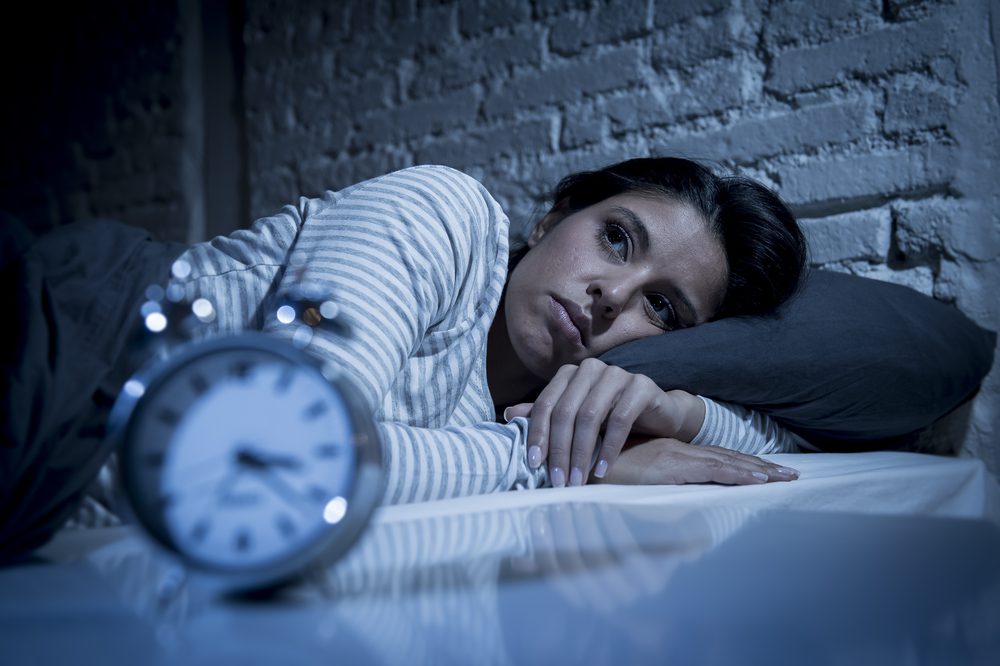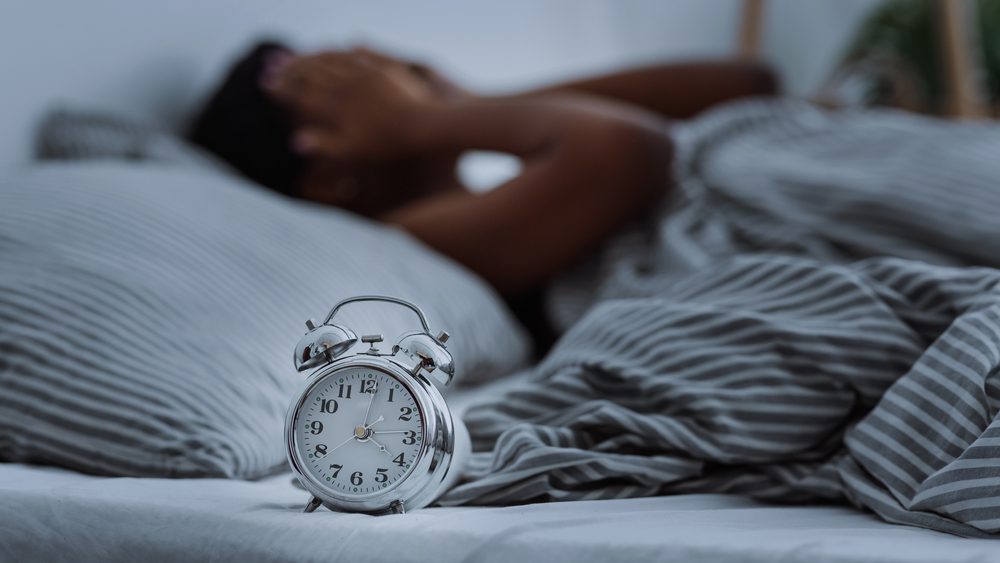Do you sometimes have trouble sleeping, and you don’t want to resort to pills or other medication? You’re in luck then, because there are a ton of easy ways in which you can treat insomnia at home, and they don’t require you to resort to going to the doctor. Of course, that’s the number one thing to do if you find yourself in an acute insomnia episode, but if it’s nothing too severe, you can always try to alleviate it yourself before you go see a specialist.
Truthfully, there are a lot of people who get short-term insomnia, way more than most of us would imagine. After all, how many of your friends or close ones haven’t told you that they have trouble falling asleep or that they keep waking up during the night? That’s still insomnia, but just because it’s not as severe as the media and other information we get about it makes it seem it doesn’t mean it isn’t there.
And sleeping pills aren’t the only way to treat insomnia! You can very easily treat it at home, be it that you are using some home remedies or you are making some changes in your routine to ease your sleeping patterns. But it’s hard to know where to start! This is why we have gathered some of the best sleeping solutions that you can try at home in order to deal with your insomnia!
And don’t worry, there’s nothing sketchy about them! They’re tried and true, and they have worked for numerous people over the years, so why not give them a try yourself if you’re battling with a bad sleep pattern?
Let us know what works for you when you try to treat insomnia at home!

#1 Tried and true for treating insomnia: Melatonin
One of the first things you can do if you want an easy way to treat insomnia is to look into taking some melatonin supplements. They are available over the counter, and a lot of natural sleeping aids are centered around this substance. And for good measure, because it is known to aid people who need to fall asleep faster and enhance the quality of their sleep. A lot of people who have started to take melatonin find that their sleep has improved drastically after taking it.
A study done in 2016 found that it is effective both in the cases of people who suffer from insomnia and also in people who cannot sleep due to cancer. The results of this study show that the quality of their sleep has improved somewhere between seven and fourteen days since they started to take melatonin.
The way in which you should take it is to take a supplement that has 1 to 5 mg of melatonin about two hours before you plan to go to sleep. Never start with the highest dose as you need to raise the dose gradually if it doesn’t work. And because, for as much good as it does when it treats insomnia, melatonin in higher doses can also give you some side effects.
The side effects include depression, headaches, irritability, even dizziness and stomach cramps, and the very thing that you are trying to solve by taking it: wakefulness at night. However, you shouldn’t rule it out as it is generally safe to use over a short period of time. So you can use it as an aid to treat insomnia and not as an end-all cure.
#2 Make some lifestyle changes!
What everyone ends up saying is that if you make some lifestyle changes, this will help you get a better night’s sleep. Unfortunately, they’re not pulling your leg and just saying that. There have been studies on a lot of people that have made those life changes, and they actually had a lot fewer problems sleeping. It’s pretty hard to shake off some of the habits you have been doing all your life, but if you truly want to be able to sleep better and treat your insomnia, you should definitely give these a try.
Most of them mention doing some form of exercise (more on that later), and that is generally a good course of action. However, if you can not do exercise for whatever reason, there are still some others you can try.
Another really popular piece of advice people give when they talk about how they treat insomnia is the fact that they avoid all the chemicals that are known to disrupt sleep. This may be bad news for people who are used to smoking, drinking, or have a caffeine addiction. But, unfortunately, if you want to be able to sleep, you will have to give them up as much as possible.
Others include eating lighter meals at least two hours before going to sleep, so your stomach doesn’t have a hard time digesting everything. You could also look into taking a hot, relaxing bath or shower before bed, as well as avoiding any screens before going to sleep. You should also make sure your bedroom is cool and that there is no intrusive light around to disturb you.
The most important piece of advice is to get up and move around if you can’t sleep: it’s better to get up and move around than to agonize in bed. Give these a try; you can never know how successful your results will be.

#3 Exercise!
You saw this one coming: treat insomnia with exercise! Yes, it’s a piece of advice that has been given as a response to a lot of different health issues, but you cannot discredit it just because you’ve heard it too many times. It actually works! Regular exercise will help your overall health, but it will also leave you with more energy during the day, aid you in getting rid of any excess weight, and yes, it will help you sleep better.
Numerous studies have been done on this, and all of them found that people doing regular exercise during the week have reported that they experienced a lot fewer symptoms of insomnia and that they had a more restful sleep when compared to the period they haven’t been exercising. It’s also been proven effective at reducing symptoms of anxiety and depression.
The one thing you should keep in mind is that this option will take some time, and it needs to become part of your routine. It is achievable with just moderate exercise for just 20 minutes every day, whenever your schedule allows for time spent on this! And you have to pay attention to your physical condition and any other restrictions you may have in regards to exercise so you don’t end up injuring yourself. Believe us, even longer, fast-paced walks will help if you do them regularly.
#4 Treat insomnia traditionally: Lavander
One of the most traditional ways in which you can treat insomnia is to make use of lavender. Turns out it’s not just the most popular scent of candles, but it’s actually extremely useful for a number of issues, from reducing pain and improving your mood all the way to promoting good sleep. There are a lot of things it can treat.
A recent study has shown that people who have taken up the habit of taking lavender oil capsules alongside their antidepressants in cases of depression have reported that their sleep patterns have improved. Alongside this, their anxiety levels lowered, which just helped them get a more restful sleep.
While taking lavender oil orally seems to be the most effective way of using it to treat insomnia (about 20 to 80mg of oil or as directed on the package), you can also use it a lot of other ways. Some use the oil in their diffusers or spray it into the room when they are about to go to sleep. Others forego the oil and prefer to drink some lavender tea instead.
Generally, taking lavender is safe to use. However, too much lavender oil ingestion can cause nausea, headaches, or even constipation.

#5 Magnesium supplements
Another way in which you can treat insomnia is by taking a magnesium supplement. It is known to help with muscle relaxation and relieve stress; being less stressed can help you sleep better at night. Moreover, it is also thought to encourage the formation of healthy sleep patterns!
Participants of a 2012 study reported that by taking 500 milligrams of magnesium daily over the span of two months, they had indeed aided their insomnia: they had fewer symptoms, they could rest properly, and they improved their sleep pattern by a significant amount.
This doesn’t mean that you should be taking 500mg of magnesium daily: the maximum dose a day for men is 400mg, while for women, it’s 300mg. This is the maximum dose and not the dose you should be taking all the time. After all, like with all supplements, you shouldn’t be taking them all the time but rather in sessions with breaks in between, and always follow the instructions on the package.
Another way in which you could make use of magnesium to treat insomnia would be to add 1 cup of magnesium flakes to your evening bath. That way, the mineral gets absorbed into your system through your skin!
If you choose to go with this option, keep in mind that you can end up having abdominal discomfort, and side effects can include stomach and intestinal issues. If you are careful with the dosage and take your supplements with food, it shouldn’t be a problem. Still, it’s a good idea to talk to your doctor if you’re already taking supplements before adding magnesium to the mix.
#6 Treat insomnia with a massage
A recent study has found that massage therapy is actually really helpful in treating insomnia, as it helps with sleep quality and any daytime dysfunction you may be experiencing. Moreover, it also reduces the feeling of pain along with improving anxiety and depression.
Sometimes professional massages aren’t an option for everyone, but you can do self-massages or even just do them at home yourself! You can get your partner or a friend to help you, and you can end up treating each other to a well-deserved massage session from time to time. What you have to do is research the techniques and tips for how to do a relaxing massage and not attempt anything complicated as you are not a professional.
When you’re getting a massage, the best way to make sure that it will end up being efficient as a treatment option is to concentrate on the feeling and on the touch of the other person and let your mind wander to nothingness, rather than fixate on stressful problems or anything of the sort. Also, if you know yourself to be sensitive to cream and certain oils, make sure you patch test anything before using it on your skin directly.
Sometimes it may be as easy as getting a bit of extra help from some of the things we eat! Read all about the foods that can help you sleep better here!






